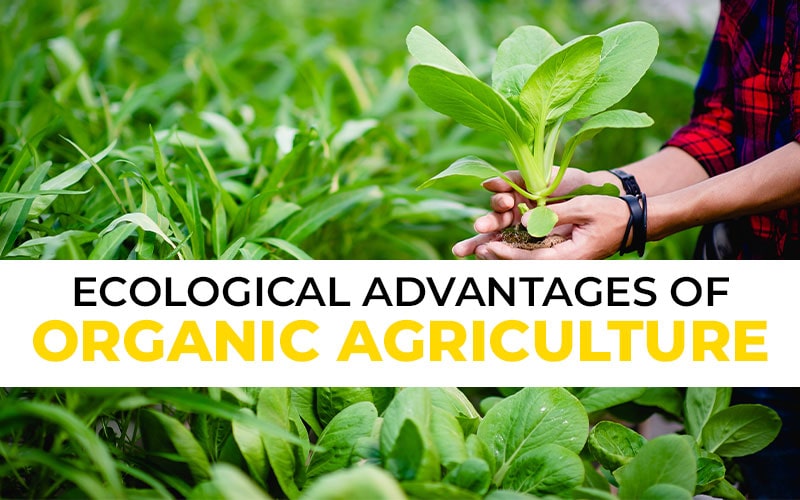Introduction:
The Earth’s health is intricately linked to the health of its ecosystems, and organic agriculture plays a crucial role in preserving the balance of nature. In this article, we explore how organic farming practices promote soil health, safeguard biodiversity, and provide various ecological advantages. By reducing exposure to harmful chemicals and promoting sustainable agriculture, organic farming emerges as a solution for the environmental challenges we face today.
1. Soil Health and Biodiversity:
Soil health is the foundation of any successful agricultural system, and organic farming diligently nurtures this vital resource. By relying on natural fertilizers, such as compost and manure, organic practices enrich the soil with essential nutrients and microorganisms, thereby improving its fertility. As a result, organic farms harbor a diverse array of beneficial soil organisms, which in turn foster a healthier and more balanced ecosystem. This promotes biodiversity, as soil-dwelling bacteria, fungi, worms, and insects create a harmonious environment that supports plant growth and resilience.
2. Ecological Advantages of Organic Agriculture:
2.1 Environmental Benefits:
Organic agriculture minimizes the negative impact on the environment by employing sustainable techniques. By avoiding the use of synthetic pesticides and fertilizers, organic farming prevents chemical runoff into water bodies, ensuring cleaner water systems for both humans and wildlife. Furthermore, organic practices enable the natural breakdown of pollutants in soil and water, reducing the risk of contamination. The absence of genetically modified organisms (GMOs) in organic farming helps maintain the purity of plant species and avoids potential unforeseen consequences on ecosystems.
2.2 Reduces Exposure to Harmful Chemicals:
Compared to conventional farming, organic agriculture significantly reduces the exposure of farmers, workers, and consumers to harmful chemicals. Synthetic pesticides and fertilizers used in conventional farming have been associated with various health issues, including respiratory problems, cancer, and hormone disruption. By adopting organic farming methods, individuals can minimize their exposure to these potentially harmful substances and contribute to a safer and healthier environment.
2.3 Promotes Sustainable Agriculture:
Organic farming embodies sustainable practices that aim to preserve natural resources for future generations. By prioritizing techniques such as crop rotation, natural pest control, and water conservation, organic agriculture lowers energy consumption, reduces soil erosion, and supports long-term ecological balance. Additionally, organic farming encourages biodiversity preservation, which is essential for crop resilience, pollination, and overall ecosystem health.
Conclusion:
The benefits of organic agriculture extend far beyond healthier food choices. By focusing on soil health, biodiversity preservation, and promoting sustainable practices, organic farming provides numerous ecological advantages. It reduces exposure to harmful chemicals, safeguards the environment, and fosters a sustainable future for generations to come. Embracing organic practices is not just a choice; it is a collective responsibility towards the health and well-being of our
About Prince Khanuja And Khanuja Group




